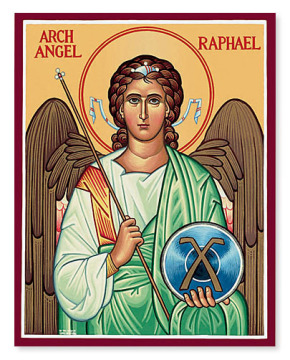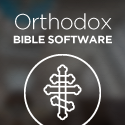According to Protopresbyter Michael Pomazansky, unlike what protestants call the “Apocrypha,” the Russian Orthodox Church considers them to be “non-canonical.” However, the books are still considered inspired Holy Scripture. “Canon” refers to whether these books are conclusively found in the Hebrew canon, and not whether they can or cannot be used for defending Christian doctrine.
Now, many protestant apologists who write against these books focus on Tobit’s alms-giving and 2 Maccabees sin offering and prayer for the dead. They claim these portions contradict what has come before them, or the rest of the Scriptures. I do not think these are good arguments, and fail to show whether doctrinally these contradict scripture. For example, it is one thing to say that prayer for the dead is against scripture, it’s another thing to prove it. There are no verses in the Scriptures that condemns such a practice. Likewise, the pious Jews who chased out Greek corruption did not seem to think it was problematic. Instead, one has to argue about knowing God’s judgements of others, or speaking about the ineffectiveness of prayer, or whether it is possible for grace or mercy to overcome and have effect in the realm of the dead, and then springboard off of that. In doing so, one must philosophize about the issue, fill in the gaps. This is not as strong a condemnation that the opponents are making though, that this practice explicitly contradicts scripture.
Tobit
Alms-giving is linked to salvation elsewhere. Although many apologetic sites like to claim merely giving alms will save, the context of Tobit shows that the whole point is serving God, not that alms-giving itself will bring forgiveness of sins. Thus, Tobit’s actions should be done in order that he might “Revere the Lord all your days… and refuse to sin or to transgress his commandments” (Tobit 4:5).
Consider this passage:
Zacchaeus stood there and said to the Lord, ‘Look, half of my possessions, Lord, I will give to the poor; and if I have defrauded anyone of anything, I will pay back four times as much.’ Then Jesus said to him, ‘Today salvation has come to this house, because he too is a son of Abraham. (Luke 19:8-9)
Was Zachaeus a son of Abraham solely because of giving alms, that he was saved soley by giving alms? No, he is a true son of Abraham because of his faithfulness to God, taking God’s word seriously.
2 Maccabees
Lev 16 is a sin offering, and 2 Maccabees makes the claim that a sin offering can be effective for the dead. Hence, why Judas sends “two thousand drachmas of silver… to provide for a sin offering.”
The only reason Judas thinks this is because the dead will be raised, which many apologists like to leave out “(For if he had not hoped that they that were slain should rise again, it would have seemed superfluous and vain to pray for the dead)” (2 Macc 12:44)
This supports a claim (if you view 2 Macc as inspired) that Jesus sacrificial atonement which is the true sacrificial sin offering (See Hebrews 9) is also sufficient for the dead, since all will be raised. For Leviticus, there is no indication of a resurrection, but 2 Macc works as an appendix that explains that Lev 16 was seen as sin offering effective for the dead, that it was not just a Christian development. Furthermore, proceeding the supporting claim that the resurrection of the dead supports what this Jew did, it also says that because of the resurrection, “It is therefore a holy and wholesome thought to pray for the dead, that they may be loosed from sins.” (2 Macc 12:46). Without the resurrection then Judas would be acting against the rest of Scripture, but this Jew is not a Sadducee (and neither are Christians), and we will all return one day, and thus it is a good thought to ask for the Lord’s mercy for all.
One last note,
I might add that our Lord Jesus Christ also celebrated the Feast of Dedication (John 10:22). The passages in John 10:22-36 is a blatant echo of the Maccabees rededication of the temple (See 1 Macc. 4:36). Perhaps I am wrong, but many protestant apologists seem to forget that the Maccabean revolt was not some obscure hidden event, that it was a “hidden book” as the name they give these books indicate. Rather, the events were in the minds of Jews. I wonder how much an explicit claim of resurrection was influenced by what was passed down from these events.

